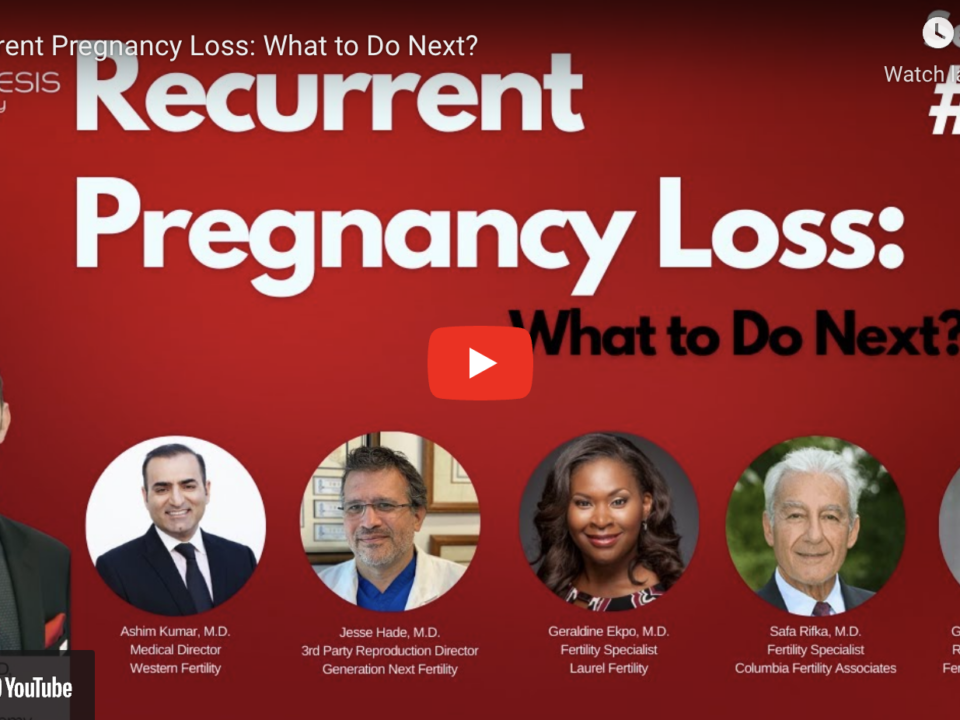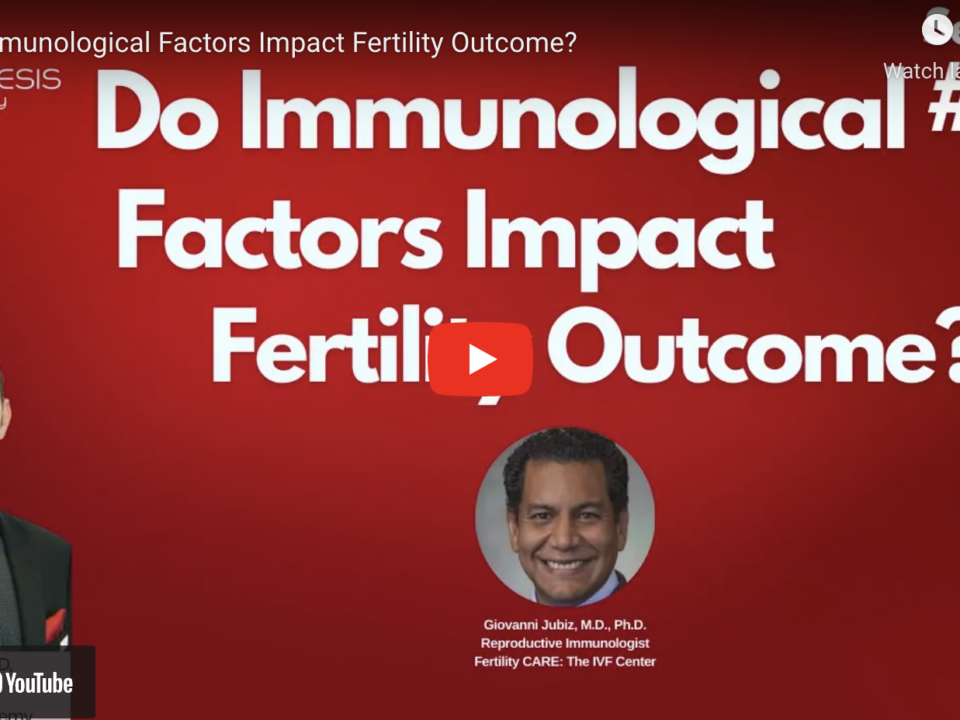
Who can be a candidate for the reproductive medicine and immunology program
March 25, 2022
Video – Do Immunological Factors Impact Fertility Outcomes?
August 11, 2022Article Summary
Recurrent pregnancy loss (RPL) is defined as two or more clinical pregnancy losses before 20 weeks of gestation (Practice Committee of American Society for Reproductive Medicine, 2013), which affects 1–2 % of reproductive-age women (Ford and Schust, 2009). A significant proportion of these women have auto- and cellular-immune abnormalities, including increased peripheral blood natural killer (NK) cell numbers and cytotoxicities, increased T helper (Th) 1/Th2, and Th17/regulatory T (Treg) cell ratios, and thrombophilic conditions (Nakashima et al., 2012; Kwak-Kim et al., 2016; Lee et al., 2012; Kwak-Kim et al., 2009; Lee et al., 2016). Additionally, the vast majority of women with RPL have multiple etiologies (Jaslow et al., 2010; Ford and Schust, 2009), suggesting monotherapy may not be sufficient to prevent RPL in a significant proportion of women with RPL. RPL is often accompanied by infertility or subfertility, either as a primary or a secondary disease to RPL (Orlando and Coulam, 2014). Approximately 27 % of women with RPL have been reported to be subfertile, and the RPL women with immunologic causes had a higher frequency of subfertility (Orlando and Coulam, 2014). Hence, at least 20 % of women with RPL may need infertility treatment, such as assisted reproductive technology (ART) (Kling et al., 2018). In women with RPL, ART cycles have been often prescribed to avoid genetic etiologies of RPL and overcome subfertility or infertility in women with RPL, although there is no data to support that ART increases the success rate of RPL. In a recent systemic review of in-vitro fertilization (IVF)-preimplantation genetic diagnosis (PGD), it was concluded that IVF-PGD, even with structural chromosomal rearrangement, should not be offered as the first-line therapy, given the unproven benefits and potential complications associated with ART (Iews et al., 2018).
Repeated implantation failures (RIF) are often defined as three or more implantation failures following IVF and embryo transfer (ET) (Margalioth et al., 2006). Patients with RIF have similar cellular immune abnormalities as women with RPL, such as increased NK cell proportions, cytotoxicities, and up-regulated Th1 cells (Kwak-Kim et al., 2003, 2013; Nyborg et al., 2014). Immunomodulatory treatment with prednisone, intravenous immunoglobulin G (IVIG), and low molecular weight heparin (LMWH) for these women has been shown to improve IVF success rates (Lee et al., 2016; Nyborg et al., 2014). Interestingly, RPL and RIF share the underlying etiologies, and many women manifest both problems together.
Implantation and maintenance of pregnancy require a complex and delicate immunological equilibrium (Kwak-Kim et al., 2014). Periods of inflammation during implantation, temporary immune senescence during the 2nd and 3rd trimesters, and the subsequent inflammation for the preparation of parturition are integral parts of normal gestation. Any imbalances or untimely and excessive inflammation can lead to implantation failure, spontaneous abortion, preterm labor, and intrauterine growth restriction (Kwak-Kim et al., 2014). Gonadotropin-releasing hormone (GnRH) and its analogues used during IVF cycles, fresh ET or frozen embryo transfer (FET), can exacerbate a pro-inflammatory state (Sung et al., 2016). Since implantation is the most critical period for a successful pregnancy (Kwak-Kim et al., 2014), it is essential to maintain the right balance between pro- and anti-inflammatory responses before, during, and after ET. Thus, the immune modulation treatment has been postulated to enhance pregnancy outcomes in women with immune etiology RPL and RIF. The clinical effect of immune modulation treatment on pregnancy rate (PR) has been challenging to analyze in women undergoing non-ART cycles since many women present both RPL and RIF, and underlying immune etiologies have not been explored well. In this study, we aim to investigate women with RPL and RIF of immune etiologies and thrombophilia undergoing ART cycles and analyze reproductive outcomes of ART cycles and the changes in peripheral blood immune markers while on immune modulation and anticoagulation treatment.
N. Sung, S.A. Khan, M.E. Yiu, G. Jubiz, M.D. Salazar, A. Skariah, S. Dambaeva, J. Kwak-Kim,
Reproductive outcomes of women with recurrent pregnancy losses and repeated implantation failures are significantly improved with immunomodulatory treatment,
Journal of Reproductive Immunology,
Volume 148, 2021, 103369,ISSN 0165-0378,
https://doi.org/10.1016/j.jri.2021.103369




